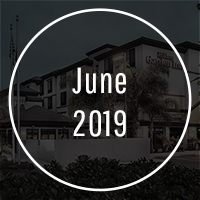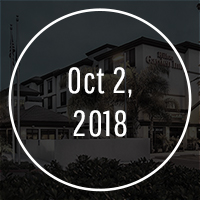Want a hotel brand? How to choose the right franchise
This article was originally published on Hotel News Now.
Considerations for hotel owners shopping for a brand affiliation include things like marketing and direct-bookings power, loyalty programs and OTA agreements.
There are myriad brands out there, and most have a place in the market.
Some are “leading” brands, others are “fair share” brands, while others rest at the bottom of the market share competition, but still bring in more dollars than cost. The remaining “throw away” brands cost as much (or more) than they produce in revenue. We also have membership organizations like Best Western Hotels & Resorts, soft brands that are powered by a brand but don’t display the name publicly, and vacation rental companies like Airbnb.
Strong brands have a powerful reservation system, a high percentage of direct bookings and a successful, global loyalty program. Better brands offer a revenue-management program emphasizing rate and smart positioning strategies, a property management system and a preferred OTA agreement benefiting the franchisee.
Leading brands, like Marriott International and Hilton, have worldwide sales departments managing leads, working with property level executives to fill rooms and marketing each property. They might offer a purchasing network that provides owners with buying power, cost savings and online training programs for employees.
Airbnb and vacation rentals
Airbnb and the vacation rental market have brought together hosts and users in a new way, creating a network of millions of travelers (especially millennials). The experience is different, and service levels vary (which is where hotels can win by differentiation), but overall vacation rentals have enjoyed much success and are always busy during peak demand periods. However, Airbnb will tire of fighting with cities, dealing with the stigma of illegal hotels and being accused of having no insurance, fire/life safety or consistency. My prediction of four years ago still stands: By 2020, Airbnb will become largely an OTA. More commissions, less hassles.
Soft brands
When Hilton and Marriott ran out of room within their traditional brand space and millennials started preferring more unique hotel experiences, soft brands were born. Marriott’s Autograph, Tribute and Edition, Hilton’s Curio, Canopy and Tapestry and many other soft brands were born in the past decade. None of these have endured the test of time, but a robust reservation system will likely power additional strong soft brands. Soft brands do offer plenty of flexibility, but cost almost as much as full brands. Will there be impact on the full brands? Yes, and when that occurs during the next recession, brand conferences will have screaming in addition to the parties.
Brand management
Management by a brand itself can work as a one-stop shop, but is becoming increasingly rare. Why? Brands do not generally provide good management. Yes, there must then be additional relationships (franchisor plus a third-party manager), but I believe statistics would show that a good third-party manager will outperform a brand managing their own label almost every time. There are even third-party operators who “specialize” in certain brands or property types, which makes a decision on who to manage your branded hotel much easier.
Why do we need brands?
The truth is, during times of prosperity, a brand is often an insurance policy. Today, independent hotels can perform rather well, and the expense of having a brand is significant. Brands charge various loyalty program, marketing, reservation and royalty fees. Brand standards can add costs that require significant capital outlays. Having said this, a good brand establishes standards, provides operating manuals, drives occupancy, has powerful brand marketing, strong loyalty programs and quality assurance programs.
Are the benefits worth the cost? According to Robert Braun, partner at law firm Jeffer Mangels Butler & Mitchell, “these standards are designed to benefit the brand, not a specific property. Even if a standard does not add value to a property, the owner is obligated to adopt it. Brand standards are generally inflexible and impose added costs on owners.”
From my experience, some brand programs are ill-conceived. Poor lobby designs, even worse food and beverage programs and concepts designed by individuals who have never worked in a hotel are a few of the challenges of having a brand. I have experienced disastrous results with brands because they assume every hotel, regardless of whether or not it is a conversion or new-build, should have the same design. I am a survivor of a completely botched lobby design in one case and a ridiculous and unnecessary expense in another.
Bottom line
Entrepreneurs have big decisions to make in the hotel space: where to buy or build, and what brand (if any) management by third-party or owner/operator model. The biggest benefits a brand provides are the abilities to get a loan and raise equity and peace of mind during a recession. There are some great brands out there and again, most of them have a place depending on market, property type and cost. Good luck! 2018 will be another great year!







